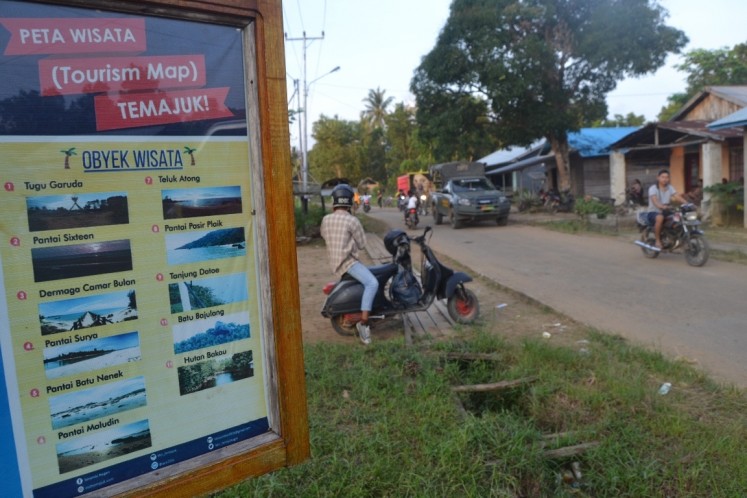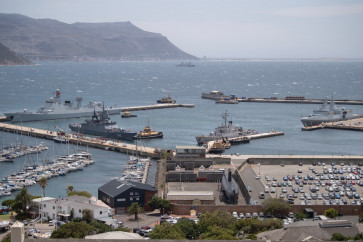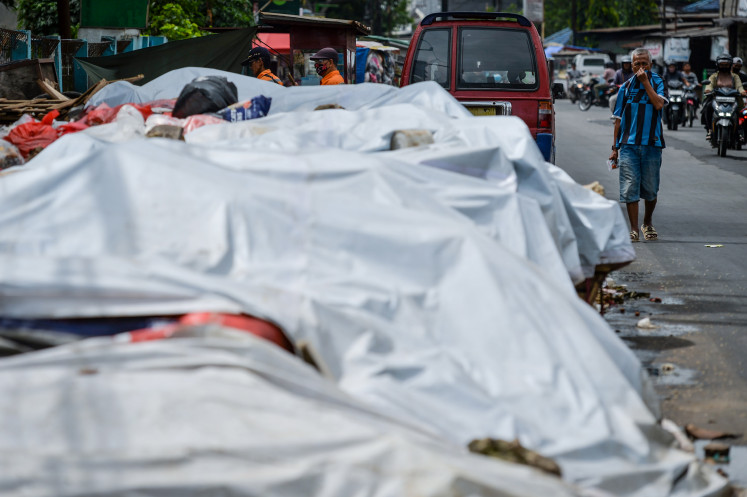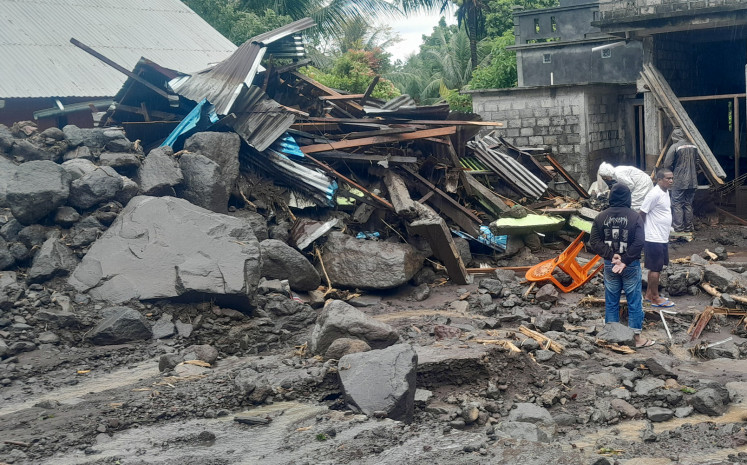Popular Reads
Top Results
Can't find what you're looking for?
View all search resultsPopular Reads
Top Results
Can't find what you're looking for?
View all search resultsEcotourism to help turtle conservation efforts in Kalimantan
Paloh beach, located at the border of Indonesia and Malaysia, is the country’s longest turtle-nesting site.
Change text size
Gift Premium Articles
to Anyone
T
he months between May and October are known as the turtle nesting season at Paloh beach in Sambas regency, West Kalimantan. The 63 kilometers of coastline have also been home to the Paloh Coastline Festival for the last seven years, an annual event to raise awareness on the importance of protecting the species from extinction. This year, the Paloh Coastline Festival was held from Oct. 5 -7.
Paloh beach, located at the border of Indonesia and Malaysia, is the country’s longest turtle nesting site. One of the key hatcheries is located at Sungai Belacan, about 40 kilometers from Temajuk village, where the festival was held.
The Ministry of Maritime Affairs and Fisheries’ director of coastline and small islands empowerment, Moh. Abduh Nurhidajat, said turtles were one of the indicators of a healthy oceanic life.
“Turtles are animals that migrate to far-off places but return to their place of origin in time for regeneration by laying their eggs. We have to protect them from sea pollutants, especially plastic waste,” he said at the festival’s opening ceremony on Oct. 5.
Read also: West Papua kicks off conservation campaign
Nurhidajat also highlighted waste management ideas. “There are a lot of waste management technologies, from those that only process the waste to those that can produce economic value. A waste bank can also be formed, and participating residents may be given incentives.”
Turtles are a protected species, hence their parts or products derived thereof may not be consumed or sold. As an alternative source of income, locals are encouraged to develop ecotourism, fishing and fish-farming.
Information for tourists is displayed at the entrance to Temajuk village, Paloh district, Sambas regency, West Kalimantan. (JP/Severianus Endi)“[We encourage locals] to care for the turtles’ habitat and create eco-tourist activities while supporting conservation and environmental protection,” Nurhidajat added.
More than 60 homestay properties are available in Temajuk village. The Sambas regency administration encourages every regional organization to provide one homestay facility in their regions. Sambas Deputy Regent Hairiah Ria said the government kept encouraging entrepreneurship in the area. “We always motivate villages in the area to supplement their income.”
Temajuk village has 2,233 residents occupying an area of around 20 square kilometers. The village has had a taste of economic prosperity from the homestay business. A homestay owner, Sunardi, said quite a significant number of visitors came to the area on public holidays. The tourists typically come to enjoy the sunset from the beach and relax in a quiet atmosphere. (asw)








